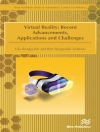The term "Artificial Intelligence" has been used since 1956 and has become a very popular research field. Generally, it is the study of the computations that enable a system to perceive, reason and act. In the early days, it was expected to achieve the same intelligent behavior as a human, but found impossible at last. Its goal was thus revised to design and use of intelligent methods to make systems more ef- cient at solving problems. The term "Applied Intelligence" was thus created to represent its practicality. It emphasizes applications of applied intelligent systems to solve real-life problems in all areas including engineering, science, industry, automation, robotics, business, finance, medicine, bio-medicine, bio-informatics, cyberspace, and man-machine interactions. To endow the intelligent behavior of a system, many useful and interesting techniques have been developed. Some of them are even borrowed from the na- ral observation and biological phenomenon. Neural networks and evolutionary computation are two examples of them. Besides, some other heuristic approaches like data mining, adaptive control, intelligent manufacturing, autonomous agents, bio-informatics, reasoning, computer vision, decision support systems, expert s- tems, fuzzy logic, robots, intelligent interfaces, internet technology, planning and scheduling, are also commonly used in applied intelligence.
Been-Chian Chien & Tzung-Pei Hong
Opportunities and Challenges for Next-Generation Applied Intelligence [PDF ebook]
Opportunities and Challenges for Next-Generation Applied Intelligence [PDF ebook]
Achetez cet ebook et obtenez-en 1 de plus GRATUITEMENT !
Langue Anglais ● Format PDF ● ISBN 9783540928140 ● Éditeur Been-Chian Chien & Tzung-Pei Hong ● Maison d’édition Springer Berlin Heidelberg ● Publié 2009 ● Téléchargeable 3 fois ● Devise EUR ● ID 2164916 ● Protection contre la copie Adobe DRM
Nécessite un lecteur de livre électronique compatible DRM












